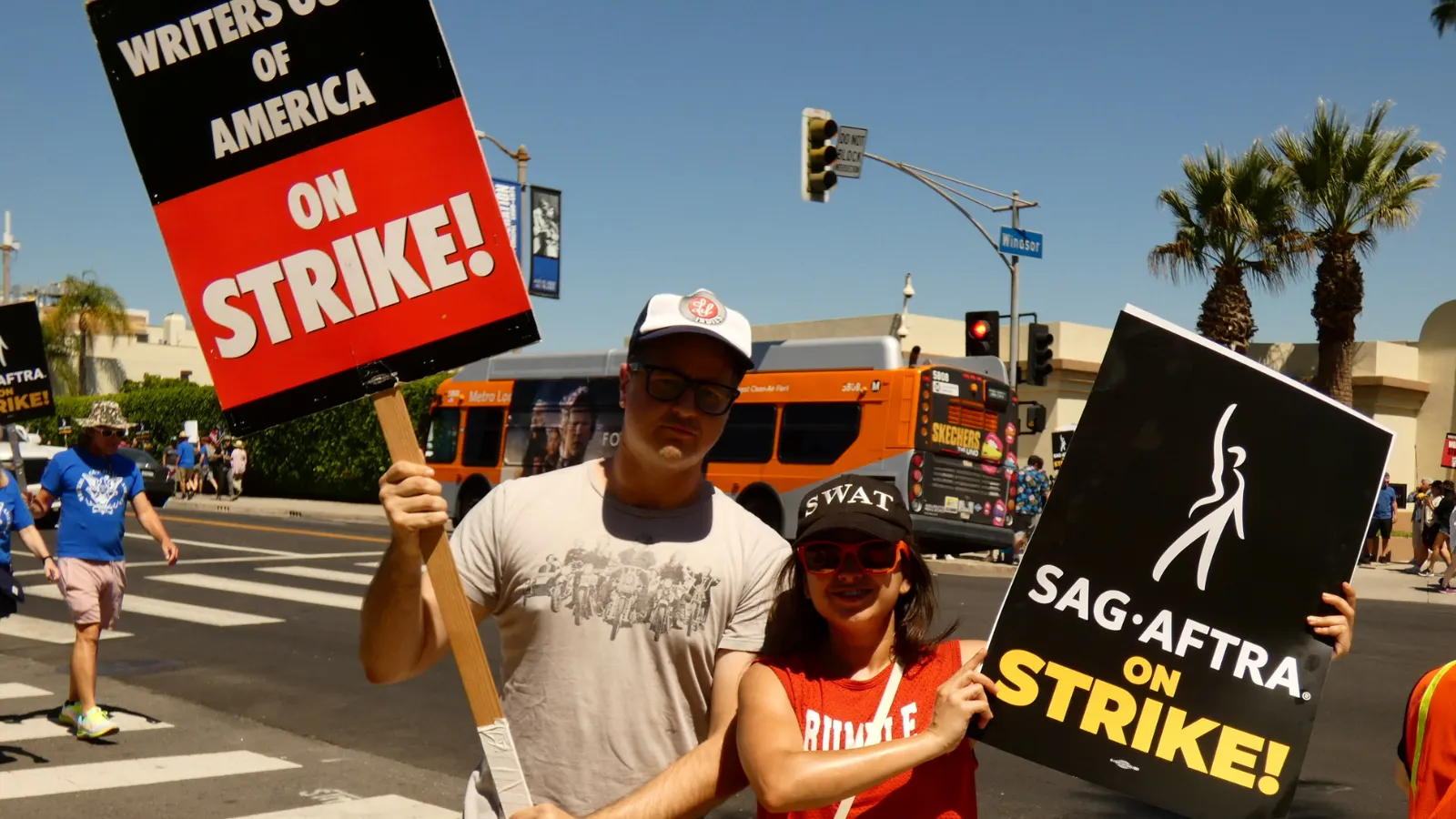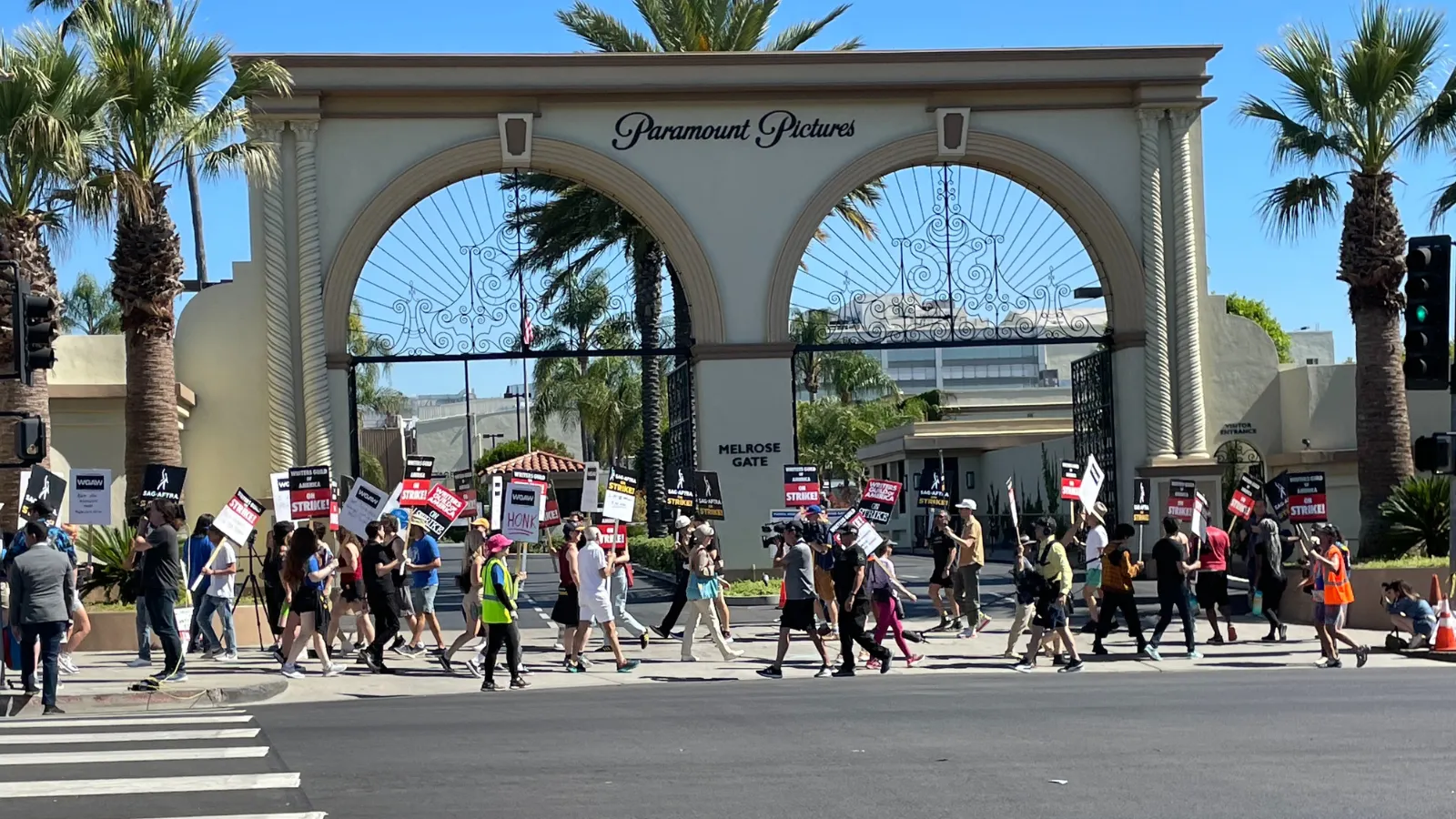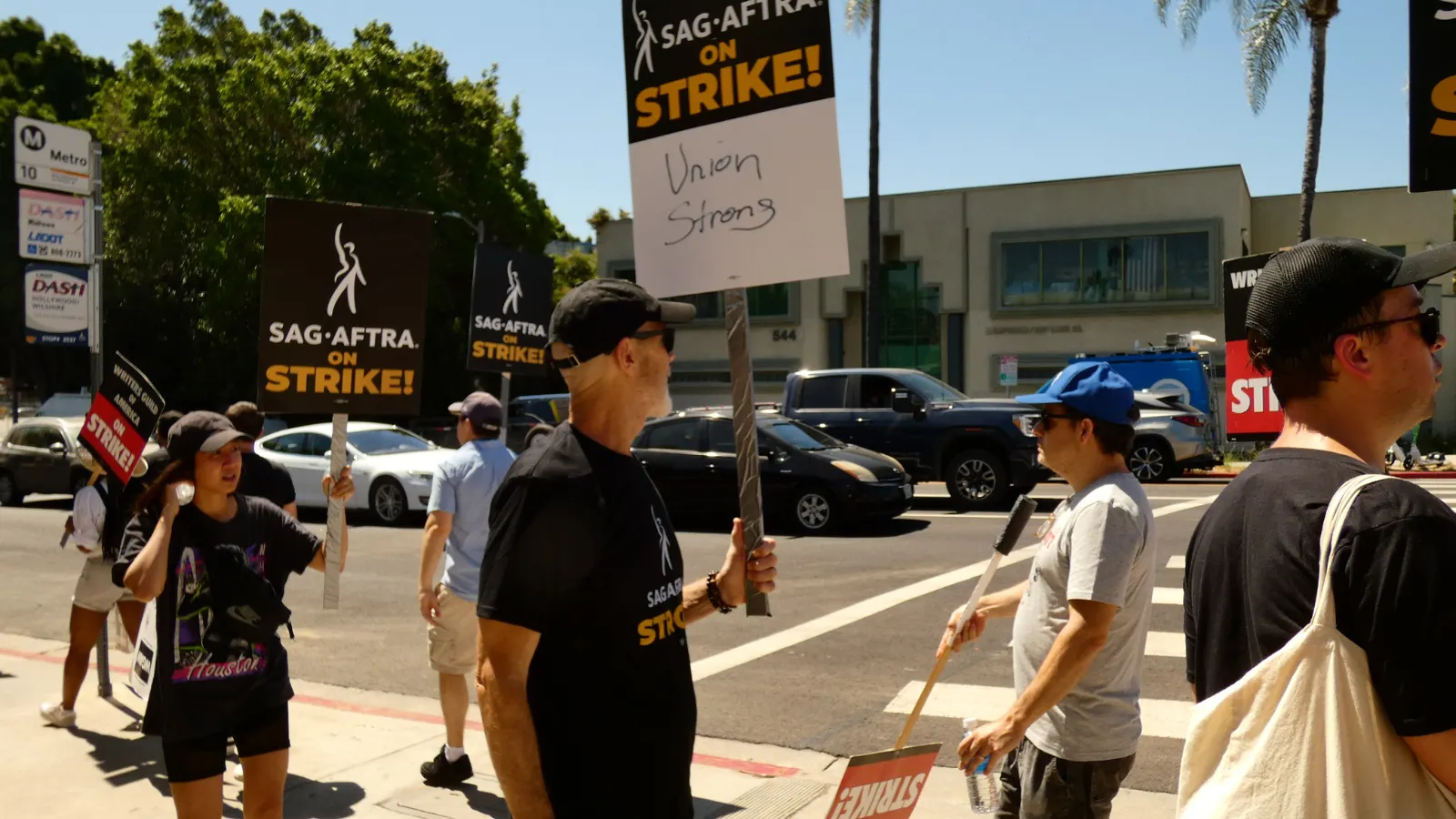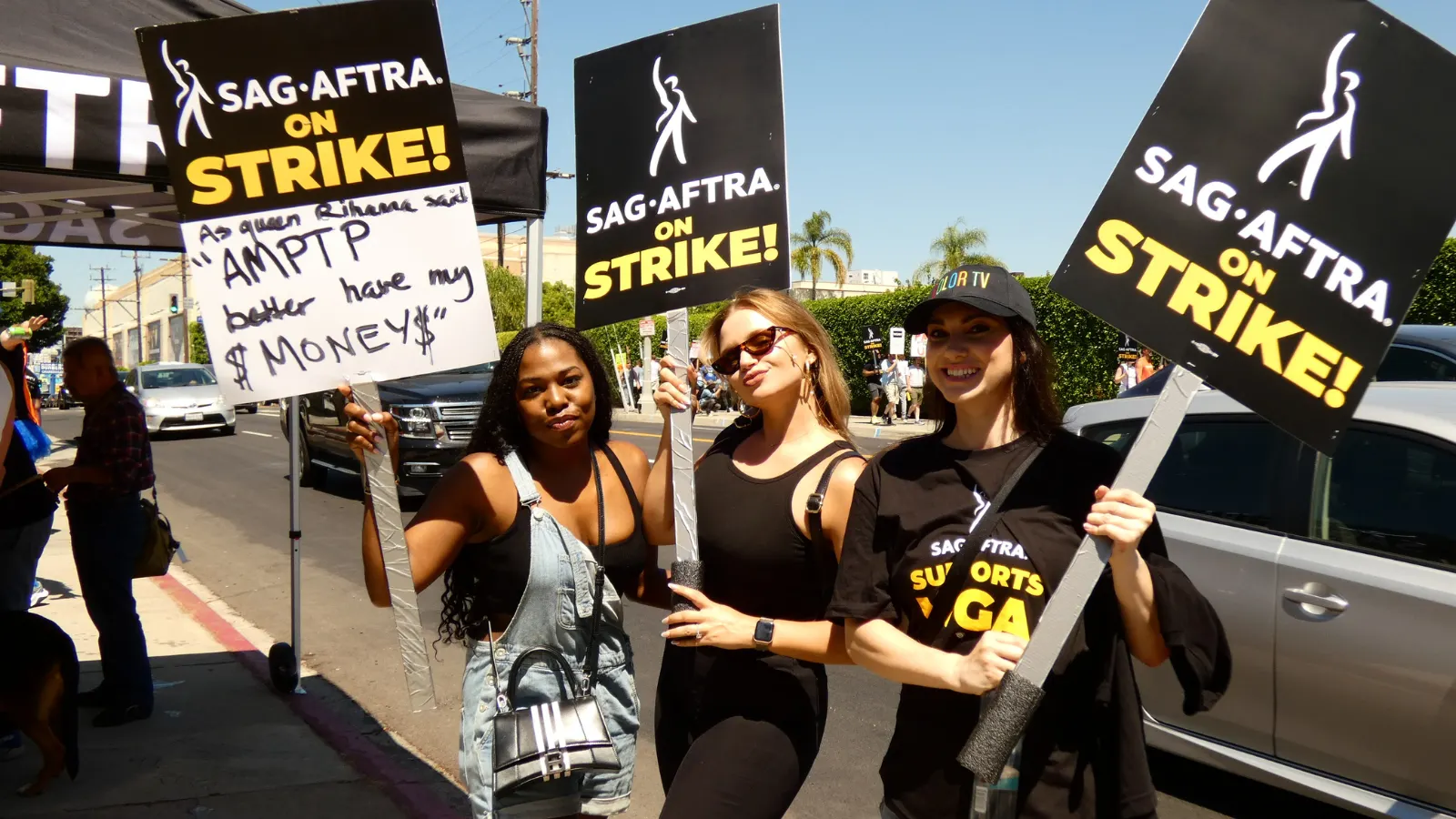The massive Hollywood machine has fully shut down for the first time in a generation as both writers and actors take to the streets on Friday to protest industry plans to embrace artificial intelligence, among other points of conflict.
"This is the first time in history that a lot of people together are saying, ‘This is not okay,’" SAG-AFTRA member and actor Danny Hogan told Decrypt outside Paramount Pictures in Los Angeles. "We have to fight for our image and voice as an artist, and we have to fight for our rights to income."
While many SAG-AFTRA members have walked the picket lines in solidarity with the over 20,000 already striking writers of the WGA since May 2, Friday marked the first official day of a joint strike after negotiations with the Alliance of Motion Picture and Television Producers (AMPTP) collapsed on Wednesday.
After negotiations failed, SAG-AFTRA’s 160,000 members went on strike, the move coming two weeks after both sides agreed to an extension to talks that ended on July 12.

"I don't think the AMPTP realized how ready we are to fight," SAG-AFTRA member and actress Laci Mosley said. "They think they're going to wait us out and starve people out to motivate us back to the table.
“They're crazy because we're used to living without money," she added.
AI's rapid move into the mainstream—disrupting the writing process, creating deepfakes, and spreading AI-generated art—caused many in the industry to wonder how it would affect their livelihood. Despite the potential of AI making the movie business more efficient, Mosley, who starred in the reboot of "iCarly," and "Lopez vs. Lopez," says she is firmly against studios using AI to replace humans.
"They don't understand that no one gets into this industry without having a heart and wanting to do this for a deeper purpose: connecting with people," she said. "A computer cannot recreate what we do and what we've worked for."

The robust arrival of SAG-AFTRA members on the picket lines have reinvigorated the protest.
"The energy is just crazy," writer, director, and actor Ike Barinholtz told Decrypt. "I've seen at least 1,000 people here, and seeing solidarity in action is pretty inspiring." Barinholtz said he is firmly in the skeptical “keep it away from me” camp.
"I need someone to say AI is going to cure cancer, or it's going to solve world hunger," he said. "Once it does things like that, I'll start to take it seriously, but the way I see it now, it's infringing on one of the few remaining human necessities of life: art."
Because it draws from human experience, Barinholtz—who starred in "MadTV," "Suicide Squad," "White House Plumbers," and "History of the World: Part II"—said all art, whether it's a painting, poem, movie, TV show, play, or stand-up comedy, should be generated by humans from human experience.

Union members were also furious over studio executives' plan to "starve" the writers out and “break the WGA,” according to Deadline. News of the comments found its way to the picket lines, and instead of demoralizing WGA members, it stoked a renewed vigor in the crowd.
"None of us were surprised by that, honestly," WGA negotiation committee member Michael Schur told Decrypt. "That's what they're doing; that's how corporations try to crush labor by making it painful, and they wait until the folks who don't have a lot of money get desperate; and then they come crawling back."
Schur, who served as executive producer on HBO's "Hacks" and the co-creator of "Brooklyn Nine-Nine," says the strike will end when the AMPTP shows a genuine interest in talking again and engaging the WGA and SAG-AFTRA on key issues, including AI.
"But they weren't interested in talking about it then and clearly weren't interested in talking bout it with SAG,” Schur said. “So the phrase "the ball is in their court " has never been more appropriate than right now."

